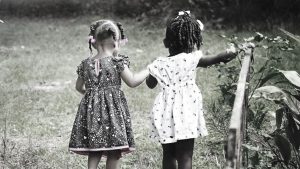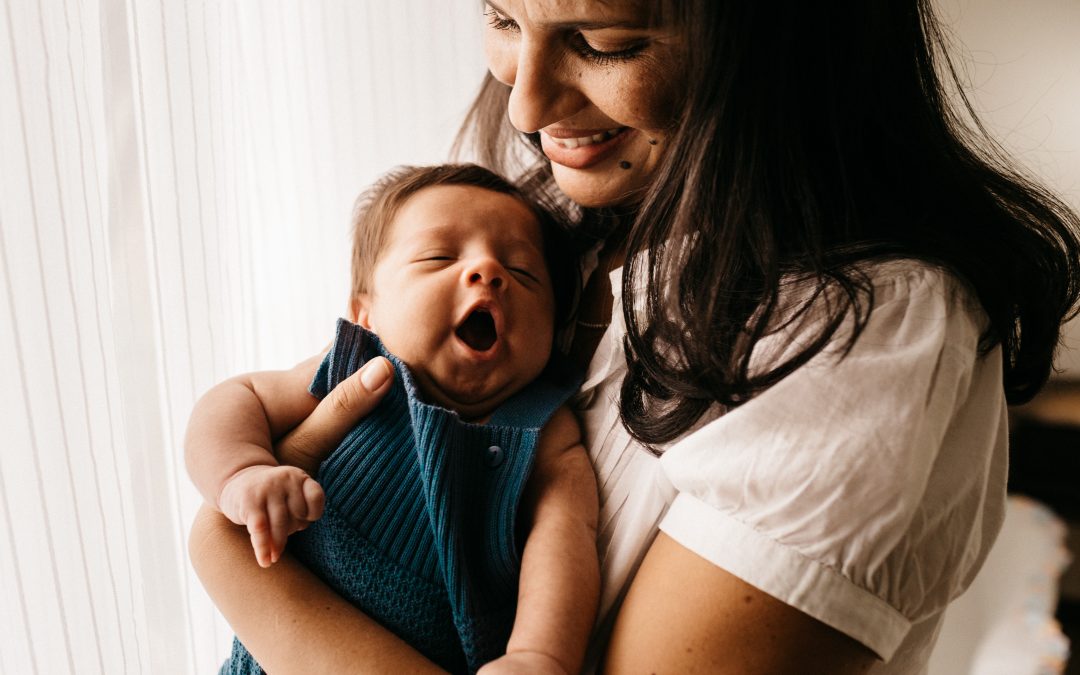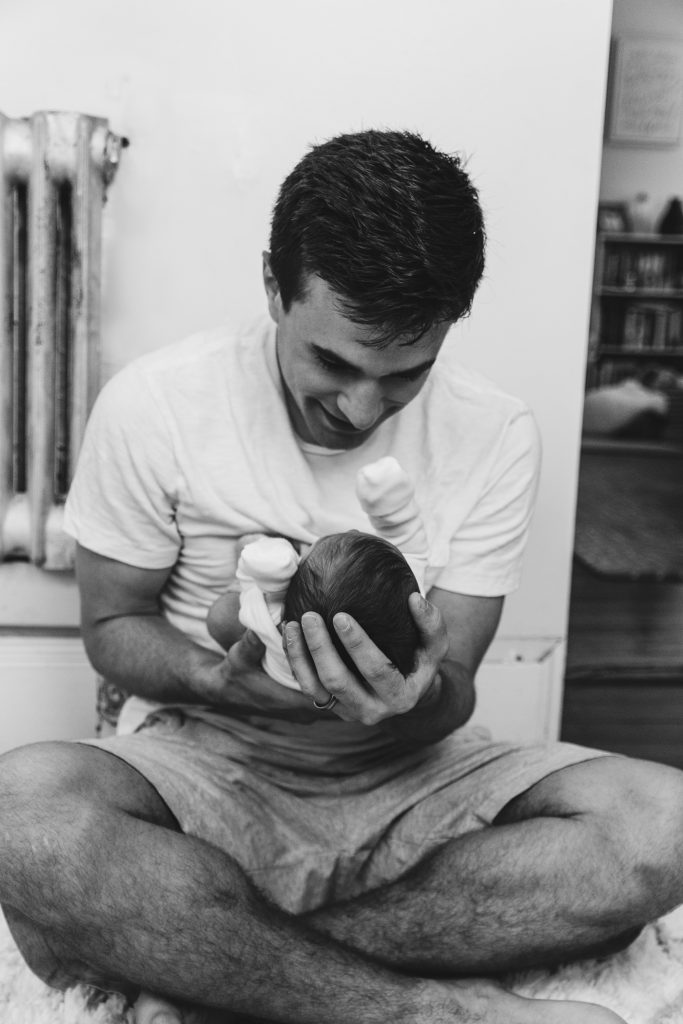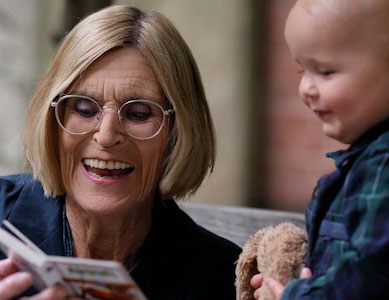
Shining a light on the ‘Baby Blindspot’
Written Thought Piece by Penelope Leach
Leading Psychologist and Researcher Penelope Leach says that the government’s ‘Baby Blindspot’, means the importance of the first two years of life in infant development is being ignored and is harming children’s development. Author of one of the best-selling baby books ever written, ‘Your Baby & Child,’ in this Thought Piece she clearly explains the neuroscience of the early years and why they are so crucial. And she outlines a plan for supporting babies and their families.
Penelope is one of the few academics to become a household name by communicating what she has researched to parents. “There is a gulf separating professionals and parents between theory and practice. My work has been, devoted to trying to bridge that gulf using every possible medium of communication”. We are honoured Penelope will be talking about her work in our Legacy Interview with her on July 10, 3pm. Don’t miss this opportunity to hear from one of the world’s most influential researchers in child development and mental health. A recording will be available to ticket holders.
Register for our Legacy Interview with Penelope Leach on 10 July
The Early Years
When concern is voiced for “the early years,” it is almost always for children past their second birthdays, and often for children past four or five. The early years, childhood, all of an individual’s life, begins at conception but apart from the work of the First 1001 Days Association and the Association for Infant Mental Health, it’s as if the first two years of life were a blank, or dissociated from what follows, rather than being the foundation of childhood and lifelong development.
Governmental disregard or apparent obliviousness to the critical importance of fetal development and the two earliest years of life from all that follows is of long-standing persistence and deeply destructive of our ability to understand young childrens’ development and wellbeing. Many examples have arisen during the last five years. In 2017 for example, consultation on the green paper called ‘Transforming Children and Young People’s Mental Health’, (1) put pressure on the government for more attention to be paid to the earliest years of life, and to issues especially relevant to infancy, such as attachment. In a largely positive response, the government acknowledged some cited evidence and suggested further research, but it offered no commitment to change and has enacted none. Perhaps current evidence to the “Children and Young Persons’ Mental Health Enquiry” (2) from the First 1001 Days Movement will be more effective. Perhaps.
Meanwhile, Public Health England, reporting on the impact of the coronavirus pandemic on the mental health and wellbeing of children and young people, (3) directly excluded infants and toddlers from consideration, stating that the phrase “children and young people” referred only to individuals from 4 to 19 years old.
The Covid-19 pandemic of 2020-2021 has predictably elicited a tide of media concern for children, but curiously, that has been focused almost exclusively on children of school age and scarcely at all on babies or preschool children.
The struggles of parents trying to home-school primary-aged children, and their loss of classroom education and social interaction get daily attention, but the struggles of parents locked in with babies and toddlers with nowhere to go, no adult companionship and no other unmasked people for infants to observe, are seldom mentioned. Even awareness of the desperate shortage of money focuses on the need for food to replace free school meals rather than the need for formula and nappies.
The lack of attention to infants and toddlers in public discourse and in politics and in policymaking, and particularly in the earliest months, from conception to birth, deprives us of the foundations on which any real understanding of the mental health and development of children and young people must be based.

Photo from Unsplash
Building Babies Brains
Almost all the growth and development of a new person’s brain takes place between conception and the second birthday (4). These first 1001 days of life, covering fetal development, infancy and toddlerhood, are often referred to as “critical” because optimal brain development throughout that period gives a baby the best possible start in life while suboptimal brain development prevents it.
Many people (5) assume, and always have assumed, that how infants’ brains develop and form the connections and interconnections which are crucial to their functioning, depends on a combination of physical maturation and genetic inheritance. But recent international research findings tell a very different story. A story that may be difficult to take in, even difficult to believe, because it is counterintuitive. Far from being a process that just happens, like many other aspects of infant development, brain development largely depends on interactions between a baby’s genes and its (his or her?) environment. While the baby is in its mother’s womb, she is his or her whole environment, controlled by the impact of her social and emotional experiences. After birth, the baby’s environment is still mostly made up of a relationship with whoever serves as his “primary caregiver”. Mothers first, then both parents, and people who stand in for parents, actually contribute to ‘building’ babies brains.
New light on the importance of pregnancy
An infant’s first environment is therefore its mother’s uterus. From the moment of conception her body is building her baby, and in the first three months the fetus – of whom she may well be unaware – shares and is affected by almost everything that affects her, positively or negatively, physically or emotionally. That’s why it is in the first trimester, that there’s the highest risk of ill effects to the developing baby from drugs or dangerous chemicals the mother may take in, including alcohol, as well as any infections and accidents that may befall her.
During the second trimester the placenta is completed and filters most, but not all, potentially harmful substances from the blood supplying the fetus. If a mother who has been drinking has a high level of alcohol in her bloodstream, the placental barrier will prevent some, but not all of it from getting through to the fetus. Experts do not agree on exactly how much or how often a mother drinks that will do damage to a fetus of a particular age, but it is generally accepted as proven that all alcohol consumption in pregnancy is potentially a risk to the fetus. (6)
It is not only substances mothers take into their bodies that may cross placentas and do babies harm. A mother’s feelings and emotions produce chemical changes in her bloodstream which may reach the fetus. If a pregnant woman is feeling very anxious, for example, high levels of stress hormones, notably cortisol, may cross the placenta, altering the chemical composition of the blood circulating in the baby’s body. The risk of harm to a fetus from negative affective maternal experience is not widely recognized. It is not that generations of women all over the world have not recognized that babies in the womb are influenced by maternal moods and feelings, but because it used to be thought to be a post-natal phenomenon such that women who were depressed and/or anxious in pregnancy often became overanxious mothers after delivery and this affected their babies. While there may be some truth in that, this generation is the first to have scientific evidence of a different story (7).
Fetuses receive complex biological signals from their mothers; signals which can be affected by their emotional states. The clearest evidence comes from studies of maternal stress. Concentrations of stress hormones in the maternal bloodstream can affect the function of the placenta so that it allows harmfully high concentrations of the stress hormone, cortisol, to reach the fetus. High concentrations of cortisol that are frequent or persistent can change aspects of fetal brain development and perhaps the epigenetic makeup (8), which dictates which genes are turned on or off, when and by how much. Occasionally this process alters a baby’s long-term development: in extreme instances maternal stress may (rarely) increase the (small) chances of a baby being born at a low birth weight, having reduced scores on developmental assessments during infancy and experiencing a range of behavioural difficulties, such as ADHD, and some physical problems such as asthma, in childhood. These are risks, not predictions, but clearly the less stress a woman experiences in pregnancy, the better.

Photo by Kelly Sikkema on Unsplash
Caring for pregnant women to protect their babies
In antenatal care, mothers and babies are both patients. Often more attention is paid to their physical wellbeing than to their emotional experiences and states. Since each of a mother-child pair can affect the other, and emotional and physical experiences impact each other, a more integrated approach would facilitate both prevention of mental health difficulties and early intervention when such difficulties arise.
Many stressors in pregnant women, potentially damaging to babies in the womb, have been identified. These include anxiety about being pregnant and/or about the wellbeing of the fetus, general anxiety, depression, with or without anxiety, spousal discord or abuse and traumatic life events, such as bereavements. There is no evidence that employment outside the home is dangerously stressful in itself, but being bullied in the workplace is a powerful stressor. However, most relevant to pregnancies during the COVID-19 pandemic have been findings of high stress levels in women involved in natural disasters or living in war zones.
Nobody’s life is stress-free, of course; but the least stressful pregnancy possible is clearly a mother’s right and a father’s duty because it is an obligation to their child. It is extraordinary that in society as a whole, these findings are ignored outside the scientific establishment. If the risks to fetuses of stresses in pregnancy were generally recognised, it would surely become clear that protecting women and their fetuses from stress and from particular stresses is an important societal obligation. It is notable that even during a year of the COVID-19 pandemic, no such awareness has been manifest. It is difficult to imagine more stressful pregnancies and birth experiences than many women have undergone and are still undergoing in 2020 and 2021, given the impact of social distancing on antenatal care, and support to women in labour. If it were a priority, some of this could be ameliorated.
The lifelong importance of early parenting
If the relationships between pregnant women’s experiences and emotions, fetuses’ womb environments, and fetal brain development were more widely understood, the lifelong importance of parenting styles to children’s development would follow intuitively.
As it is, while it is obvious to everyone that the way babies are treated affects their behaviour, by no means everyone recognises the impact of parenting styles on infants’ lifelong development. Parents’ (or caregivers’) treatment of a baby is liable to affect far more than his or her immediate behaviour. It impacts the actual structure and functioning of the still-plastic and rapidly growing brain and therefore affects the infant’s long-term development. The idea that parenting behaviour may permanently affect the structure and functioning of infants’ brains is counter-intuitive; some people even describe it as absurd. But there is a growing body of worldwide evidence that it is so (9).
In the first days and weeks of postnatal life, a baby’s environment still consists almost entirely of its mother. Every baby needs at least one particular adult who is devoted to it. If he or she has no such person, receives minimal or inappropriate adult attention, or is born into a home that is a place of anger, strife or even violence, its brain structure and chemistry will immediately begin to adapt defensively. Such a baby may develop extra strong fear and anger reactions, or intense attack and defence impulses in the deep, primitive part of the brain. If, as the weeks pass, his or her brain continues to be saturated with stress hormones, the baby may start to become hyper-vigilant, permanently prepared for ‘fight or flight’ and disproportionately upset by minor setbacks. We all know adults who have retained those characteristics, but their origins are not always recognised outside a mental health consultation room. If, on the other hand, a baby is born to a mother who celebrates him or her, cuddles and plays with the baby, listens to it, laughs with it and comforts it when it is upset, the connections that form in his or her brain will be very different. Because the baby can rely on an adult being available and aware of his or her feelings, and ready to soothe and correct extremes of stress, fear and anger, it’ll have the confidence to explore and be on the way to becoming someone who can cope with internal emotional extremes and form secure attachment as he or she grows up.
Attachment
Attachment is a universal survival mechanism. All human beings have an inbuilt genetic predisposition to seek refuge with their attachment figures (usually, but not always, mothers) whenever they are distressed. People go on developing attachments all through their lives: to other family members, especially fathers; to adults from outside the family such as teachers; to childhood and adolescent ‘best friends’, and eventually to adult romantic and sexual partners and perhaps to children of their own. But this first attachment, forged in the first year of life, is the template for all that follows. A very large, rapidly growing body of international research (10) shows that babies’ secure attachment to their mothers, or whoever mothers them, and the attunement and responsiveness of mothers to their babies, is crucial to lifelong development, to emotional stability and mental health as well as to aspects of physical health.
Furthermore, stress, including the stresses that lead to and result from insecure or broken attachments with their main carers, may damage a baby or toddlers’ capacity to learn, and may, in extreme instances, damage it forever. When researchers compare children of any age on any aspect of development, such as learning language, resilience in adversity or sociable play with other children, their mother’s (or primary caregivers) tuned-in-ness and readiness to respond in the first year of life explains more of the differences between the children’s achievements than does anything else. It is a fact, not merely an opinion, that the more the baby experiences its mother or her substitute as attentive, responsive and loving, the better he or she will flourish today, and the more resources it will have to cope with difficulties tomorrow.
Throughout the first 1001 days of life, as a fetus, a new-born, an older baby and a young toddler, a child’s development – mental, cognitive and emotional as well as physical – largely depends on his or her relationships with parents; mothers first as biology dictates but then also fathers or others. Concern for children’s and young peoples’ mental health, and interventions to protect or repair it, cannot be effective unless that period is recognised as critical: not a part of life to be ignored, but a part of life to be acknowledged and understood as its foundation. That knowledge and understanding is crucial if effective action to support parents and infants is to be taken. Currently, there is plenty of talk and print, but little action being expended on the wellbeing of babies and children under school age, although action is desperately needed, not only to improve the lot of disgracefully deprived families now but also to provide new opportunities for all those concerned with young children’s mental and emotional health and development.
During the COVID-19 pandemic, the lack of attention paid to this age group by politicians, policymakers and media has become particularly noticeable. Concern for children has been mostly focused on those of school-age and on their deprivation of schooling and socialising; hardly at all on the developmental, and especially the emotional, needs of babies in the womb and after birth, or of toddlers’ needs and parents’ struggles to meet them. Concern for parents has been less for the stresses social distancing has put on antenatal and delivery-room care, or the daily demands of keeping a nine-month baby entertained than for difficulties in home-schooling reluctant eight-year-olds without access to devices.
We could have done far more for the youngest children and their parents during lockdowns. Now we need to recognise the damage done and get ready to come back better in the future.
Effective action is possible. The government is increasingly clear that local councils and local organisations must play a major role in continuing control of COVID-19 and in the nation’s social and economic recovery, once vaccination allows society to move on. The government is acknowledging that this pandemic has increased social inequalities, being harder on women than on men and hardest of all on women with children because, even more than usual, the brunt of childcare and domesticity has fallen to them. But despite these indications of understanding, there is currently no offer of remedial action.
Restoring those missing beginnings
There are hopeful suggestions though. Long before the Covid-19 pandemic, some eminent paediatricians were demanding change in society’s attitudes to children and families, especially the need for early interventions to begin at the beginning of lives (11). The urgent need for infant mental health to be recognised as a core part of the training curriculum for all professionals who work directly, at any level, with infants and their families has been recognised by the Association for Infant Mental Health and is being acted upon through establishment of the UK Infant Mental Health Competency Framework (IMHCF) which aims to build the skills of everyone working or planning to work with pregnant women and babies up to two years of age.
https://aimh.uk/professional-development-infant-mental-health/uk-imh-competency-framework/
With professionals embracing ideas of these kinds, and the government looking for local involvement, the time may be right for Baby and Toddler Centres, not Family Hubs or Family Centres, catering with phone lines and leaflets for whole families (and therefore unlikely to prioritise the first 1001 critical days), but real bricks-and-mortar places for parents to bring infants and find companionship, advice and help from each other and from the whole range of professionals concerned with infant mental health and working together. A fully funded national network of centres would require a substantial commitment and cause a major administrative upheaval nationally, but on a lesser scale than the proposed changes to the NHS.
The model, of course, is Sure Start Children’s Centres set up to help ameliorate child poverty in an earlier generation. Their effects were largely positive but short-lived. The centres were lost during a decade of cuts to benefits and to services for families. Now the needs they addressed are ever-more widespread and intense, and it seems inevitable that as the country – the world – struggles with post-pandemic recessions, poverty and deprivation will increase.
The Baby and Toddler Centres envisaged here need to receive adequate government funding that is ring-fenced. They need to be local, both in their geographical positioning and in their involvement in communities, and there need to be as many centres as primary schools in a given area. Such centres could bring together a wide range of professionals including social workers, early years’ practitioners, health visitors, community midwives, community paediatricians, speech therapists and infant-parent psychotherapists. If centres were organised with apprenticeships and training on offer for different roles, many young people who are currently without employment or prospects could contribute now to community restoration and help build the community structures for a levelled-up future; a future in which every community offers wrap-around care accessible to all parents and infants, from pregnancy through toddlerhood, and services and support available to all.
View more in-depth thinking from our guest bloggers on our Thought Pieces page.
References
- Transforming children and young people’s mental health (2007)
- Children and Young Persons’ Mental Health Enquiry
- Public Health England ‘The impact of the coronavirus pandemic on the mental health and wellbeing of children and young people’ 2020
- Sheridan, M. & Nelson CA (2009) Neurobiology of fetal and infant development: Implications for infant mental health
- Belsky J & de Haan M (2011) Annual Research Review: Parenting and children’s brain development: The end of the beginning
- Robin Balbernie, ‘Circuits and Circumstances – Importance of Earliest Relationships and their Context’ (Transforming Infant Wellbeing) 2018 ed. Penelope Leach
- Pawlby S, Keeping the baby in mind: New insights into the link between maternal childhood trauma, mental health problems in pregnancy and outcomes for the child
- Bakermans-Kranenburg MJ et al ‘Less is more: meta-analyses of sensitivity and attachment interventions in early childhood’ 2003
- Robin Balbernie, ‘Circuits and Circumstances – Importance of Earliest Relationships and their Context’ (Transforming Infant Wellbeing) 2018 ed. Penelope Leach
- Leach P ‘Fifty years of childhood’ (Transforming Infant Wellbeing) Routledge London, 2018.
- Aynsley-Green A ‘Changing society’s attitudes to children and families (Transforming Infant Wellbeing) Routledge London, 2018.
- Transforming Infant Wellbeing (2018)




